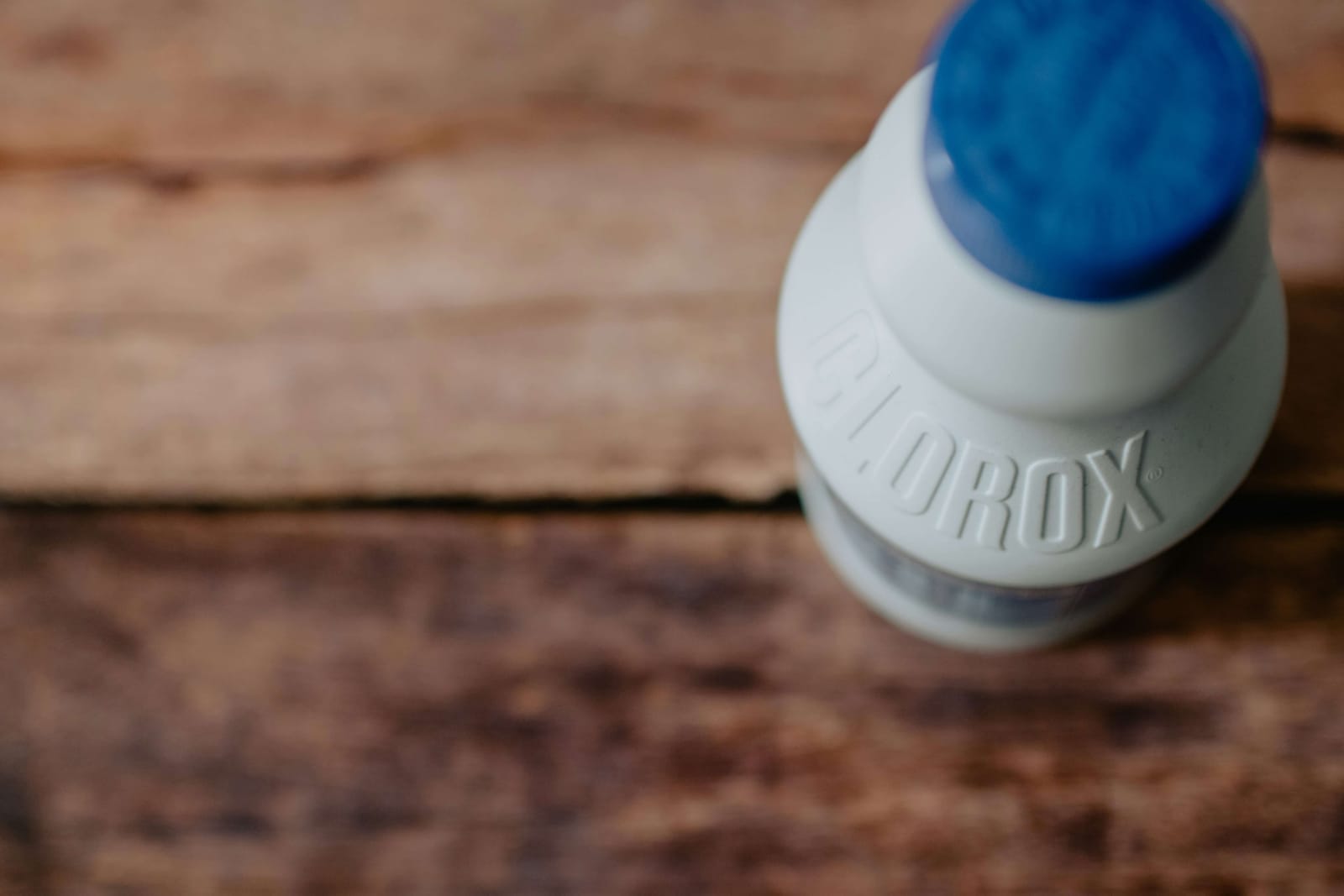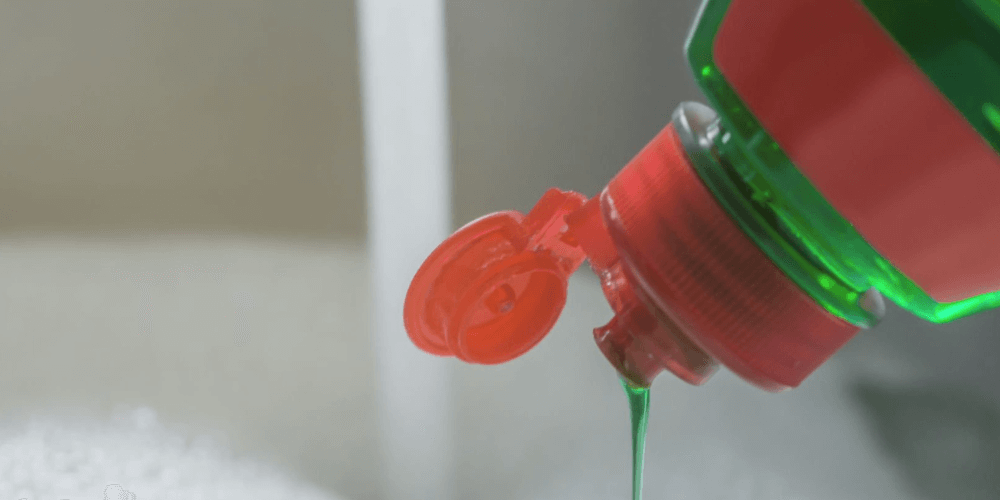Have you ever paused while scrubbing your pots and pans and wondered about the impact of those strong-smelling chemicals on your health and the environment? In our journey towards a greener, healthier lifestyle, the choice of cleaning agents plays a pivotal role. Moving away from harsh chemicals to natural cleaning solutions not only benefits our planet but also safeguards our health. This guide introduces you to the world of natural cleaning agents, showcasing their effectiveness in keeping your cookware spotless and shining, without the environmental footprint.
In This Article
- Why Choose Natural Cleaners?
- Common Natural Cleaning Agents
- Recipes for Natural Cookware Cleaners
- Special Considerations for Different Materials
- Tips for Maintaining Cookware with Natural Cleaners
- Troubleshooting Common Cleaning Challenges
- Call to Action
Why Choose Natural Cleaners?
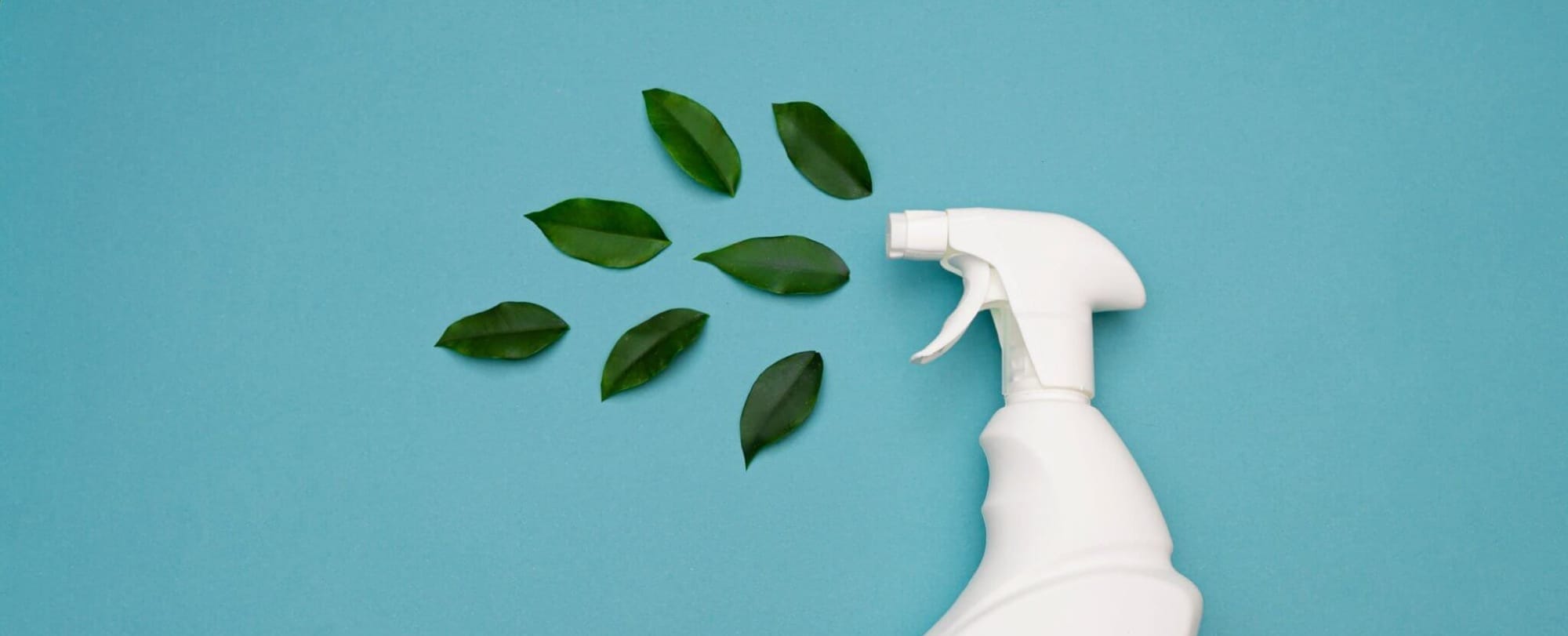
In the quest for sparkling clean cookware, it's easy to reach for the bottle of chemical cleaner. But at what cost? Chemical cleaners often contain substances that can be harmful to our health, causing skin irritations, respiratory issues, and more. Moreover, their production and disposal pose significant risks to our environment, contributing to pollution and waste.
Switching to natural cleaners offers a breath of fresh air—literally. These eco-friendly alternatives are not only safe for your family and pets but also gentle on the planet. They're often more cost-effective too. Imagine using ingredients from your pantry to create powerful cleaning solutions. It's a simple step towards a more sustainable lifestyle, reducing your carbon footprint and embracing a healthier home environment.
Common Natural Cleaning Agents
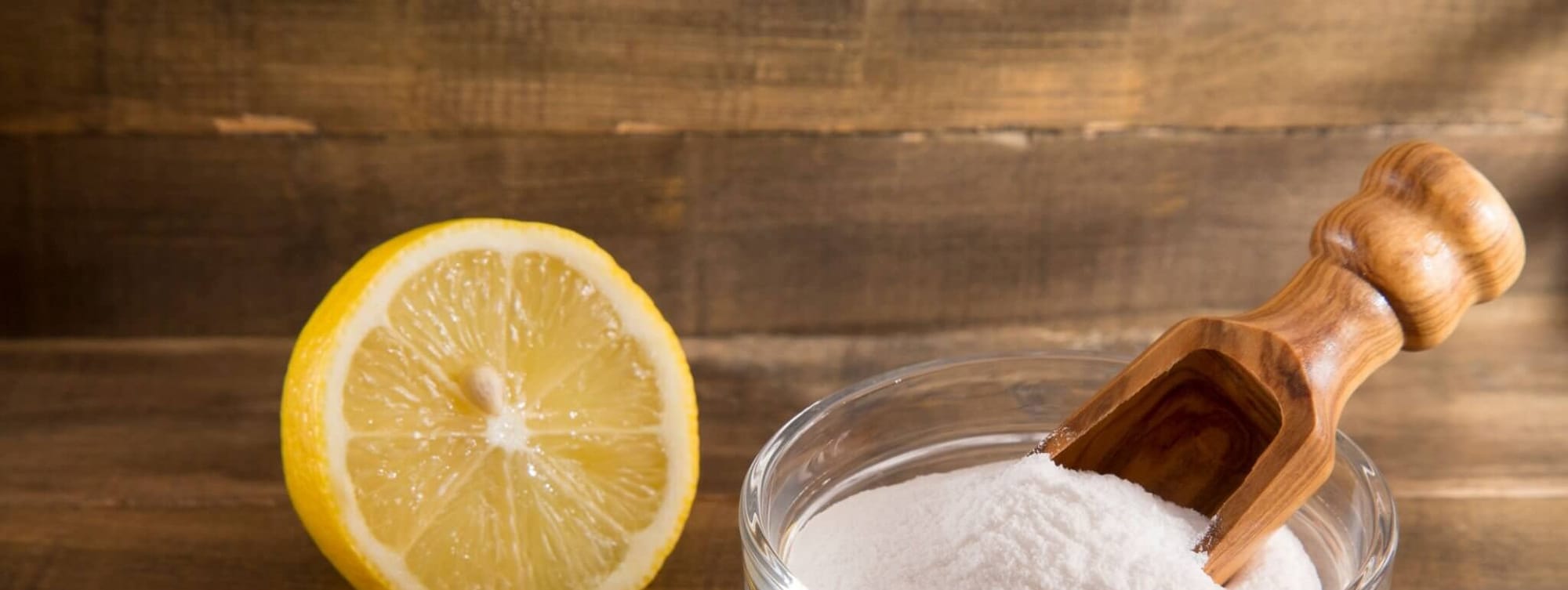
Nature is abundant with powerful cleaning agents, and you might be surprised to find that many of them are already in your kitchen. Here's a closer look at some of the most effective natural ingredients for keeping your cookware in pristine condition:
- Vinegar: This kitchen staple is a natural disinfectant and deodorizer, cutting through grease and mineral deposits with ease. Its acidic nature makes it perfect for shining stainless steel and glass.
- Baking Soda: Known for its abrasive yet non-scratch properties, baking soda is ideal for tackling tough stains and burnt residues on pots and pans. It's also great for neutralizing odors.
- Lemon: The citric acid in lemons not only provides a natural shine but also has antibacterial properties. It's excellent for removing stains and freshening up your cookware.
- Salt: Coarse salt can be used as a gentle scrub to clean cast iron pans and other cookware, removing grime without damaging the surface.
Recipes for Natural Cookware Cleaners
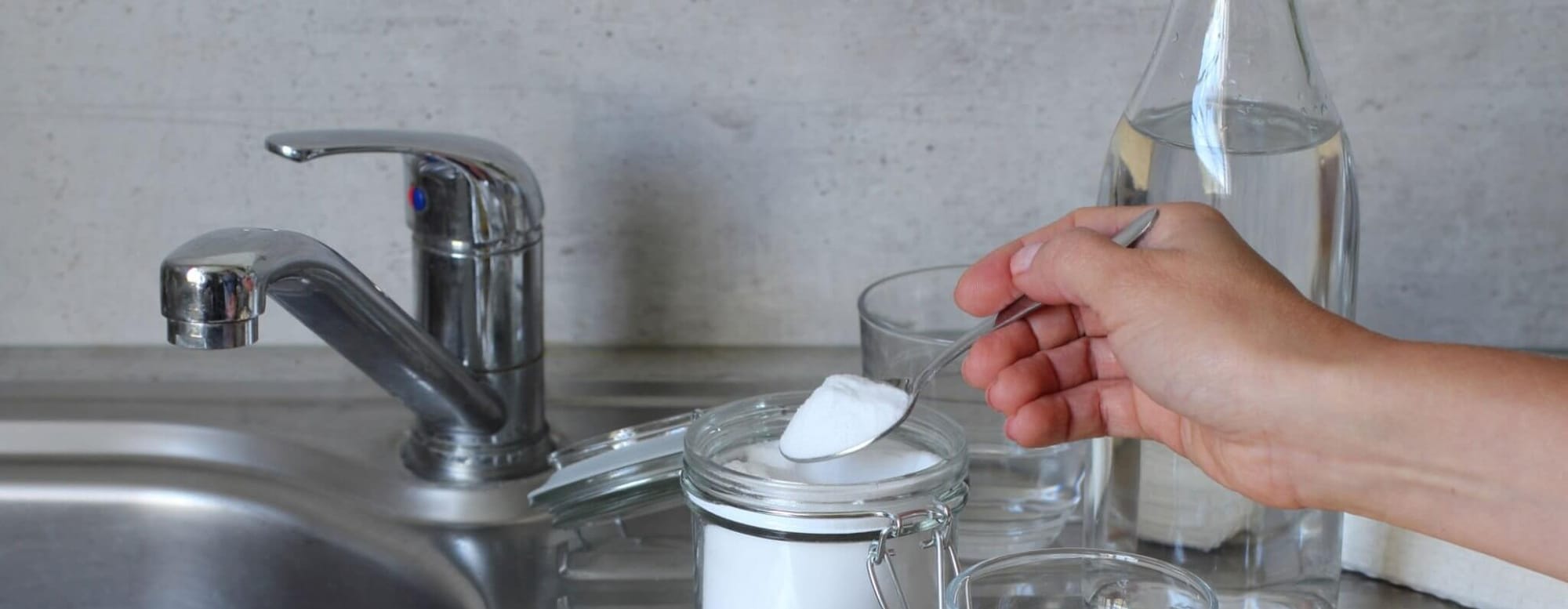
Below are some effective recipes and methods tailored for different cookware materials, ensuring your kitchen essentials are not only clean but cared for in an eco-friendly manner.
Vinegar Solutions
For Stainless Steel & Ceramic: Create a simple yet powerful cleaning solution by mixing equal parts of water and white vinegar in a spray bottle. Spray directly onto the cookware and wipe with a soft cloth for a streak-free shine. For tougher stains, warm the vinegar solution on the stove in the cookware you're cleaning, allowing it to sit for 10 minutes before washing as usual.
For Disinfecting: Bring a solution of one part vinegar and one part water to a boil in the pot or pan. Allow it to simmer for a few minutes. This method is especially good for removing lingering food smells and disinfecting after cooking raw meats.
Baking Soda Scrubs
For Burnt Residues: Sprinkle baking soda directly onto the bottom of the pan and add just enough water to form a paste. Let it sit for an hour, then scrub gently with a sponge. The abrasive nature of baking soda works wonders on burnt-on food without scratching the surface.
For General Cleaning: For less severe cases, a mixture of baking soda and water to create a paste can be applied to all surfaces of the cookware. Allow it to sit for 15-20 minutes before scrubbing and rinsing.
Lemon Freshness
For Odor Removal: Rub the cut side of a lemon over the cookware, or leave a few lemon peels to soak in the pot or pan with water overnight. This is particularly effective for removing fishy smells or the scent of strong spices.
For Brightening: To brighten aluminum or stainless steel, rub the cookware with a lemon half dipped in salt, then rinse thoroughly. This method combines the acidity of lemon with the abrasive texture of salt for a chemical-free polish.
Salt Abrasives
For Cast Iron: Coarse salt is ideal for cleaning cast iron without removing the seasoned coating. Sprinkle a generous amount of salt into the pan and use a damp cloth or sponge to scrub the surface. The salt acts as an abrasive, lifting away food particles and surface rust. Rinse with hot water and dry thoroughly.
For Polishing: Mix coarse salt with a bit of lemon juice to form a paste for a natural polish that works well on copper and brass cookware. Apply the paste, let it sit for a few minutes, then rinse and buff with a soft cloth.
Special Considerations for Different Materials
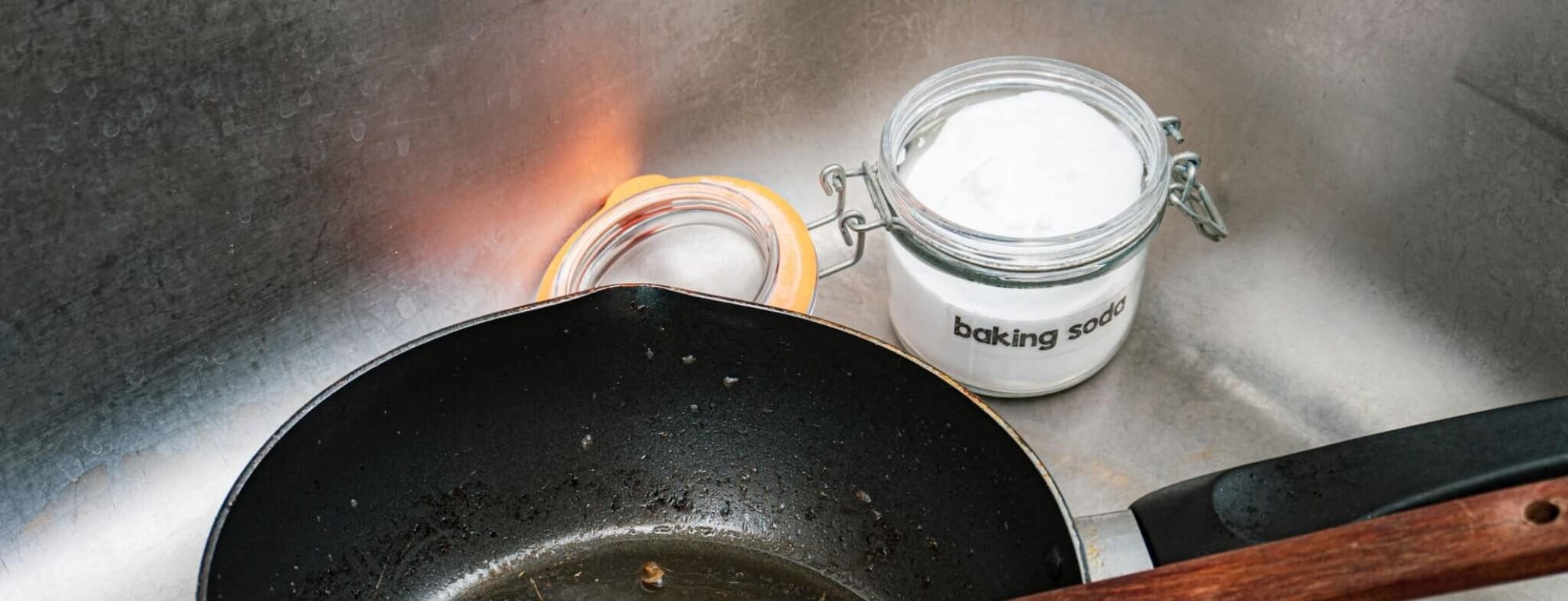
When it comes to natural cleaners, one size doesn't fit all. Different cookware materials require specific care to avoid damage while ensuring they're cleaned effectively.
- Stainless Steel: Avoid using too much salt with vinegar on stainless steel, as it can cause pitting over time. Vinegar and water solutions are best for routine cleaning.
- Cast Iron: Never soak cast iron in water or use soap once it's been seasoned. Salt scrubs are ideal for removing stuck-on food without stripping the seasoning.
- Ceramic: Baking soda is excellent for ceramic surfaces but use it as a paste rather than a dry powder to avoid scratches. Lemon and water can help remove stains without harming the glaze.
- Non-Stick: Use gentle, non-abrasive sponges with baking soda and lemon to clean non-stick surfaces without scratching the coating. Avoid high heat when drying.
Tips for Maintaining Cookware with Natural Cleaners
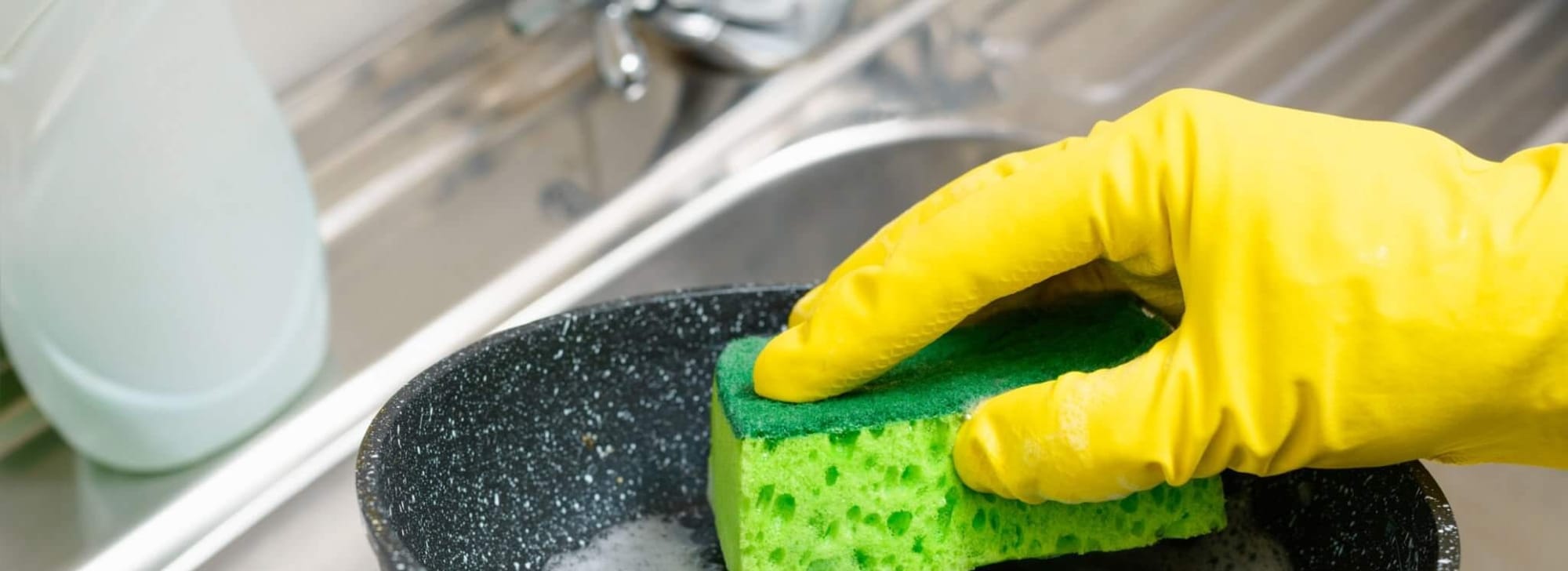
Regular maintenance with natural cleaners not only keeps your cookware in prime condition but also contributes to a healthier kitchen environment.
- Routine Rinsing: After each use, rinse cookware with warm water and a splash of vinegar to prevent food buildup.
- Monthly Deep Clean: Give your cookware a monthly deep clean with the appropriate natural cleaner for its material to maintain its condition and appearance.
- Seasoning Schedule: For cast iron and other metals that require seasoning, establish a regular schedule to oil and bake them, ensuring a naturally non-stick surface.
- Dry Thoroughly: Always dry your cookware completely after washing to prevent rust and water spots, especially when using natural cleaners that include water.
Troubleshooting Common Cleaning Challenges
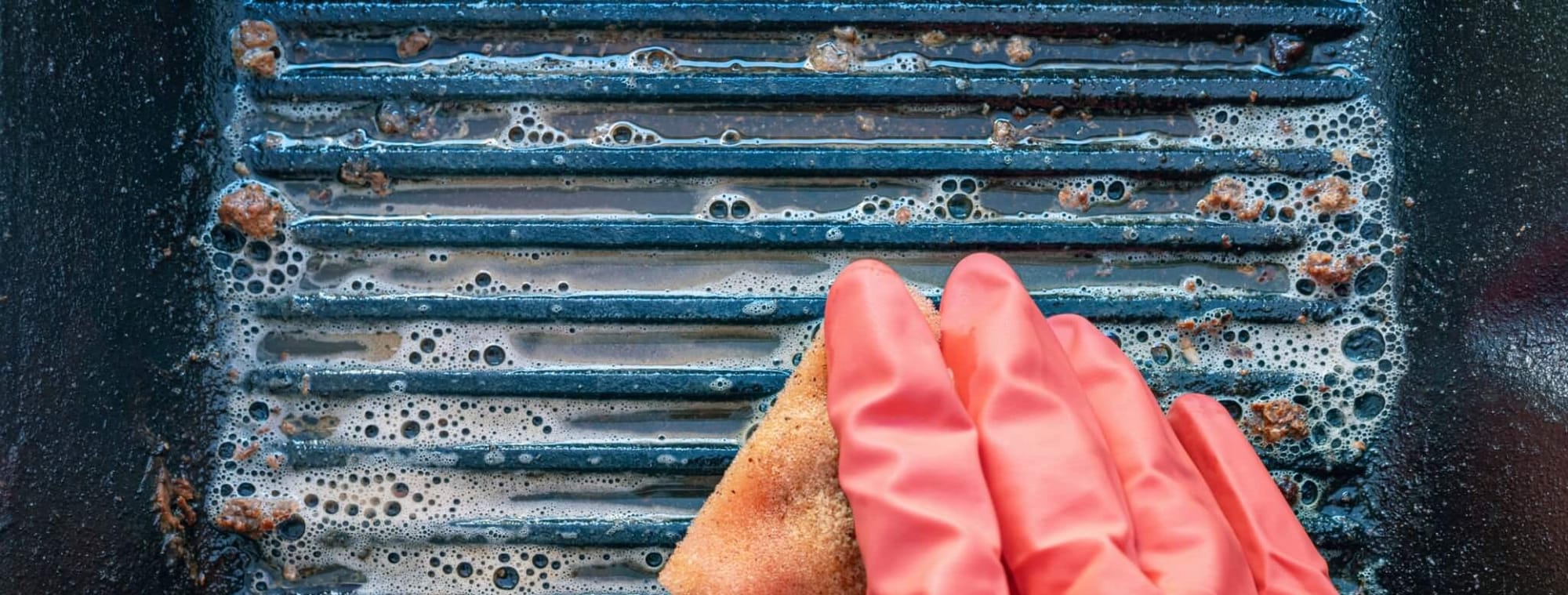
Even with the best care, you might encounter some cleaning challenges. Here's how to tackle them with natural solutions:
- Burnt Pans: For pans with burnt-on food, a mixture of baking soda and vinegar can loosen the grime. Apply, let sit, then scrub gently. For stubborn burnt-on residue, particularly on the bottom of your cookware, you can try this method from Blue Apron: How to Clean the Bottom of Pans & Pots. This technique uses a combination of baking soda, vinegar, and water to loosen tough grime, making it easier to scrub away.
- Rust Removal: If rust appears, especially on cast iron, use a paste of salt and lemon to scrub it away gently. Re-season if necessary.
- Sticky Residues: Sticky residues on non-stick pans can often be removed with a soft sponge and a paste of baking soda and water, followed by a rinse with lemon water.
- Water Spots: To eliminate water spots on stainless steel, wipe down with vinegar before drying with a soft cloth.
Share Your Eco-Cleaning Wins

Now that you're equipped with the knowledge to keep your cookware clean and green, we'd love to hear from you! Have you tried any of these natural cleaning methods? Do you have any tips or tricks of your own? Share your experiences and advice by sending us an email or on social media. Let's create a community of eco-conscious cooks, one clean pot at a time. Your insights could inspire others to embrace natural cleaning solutions, making a small but meaningful impact on our planet.
- Further Reading: "Eco-Friendly vs. Traditional Cookware" to explore the benefits of eco-friendly materials that are easier to maintain with natural cleaners.
- You Might Be Interested: "DIY Eco-Friendly Cookware Solutions" for more ways to enhance your eco-friendly kitchen practices.



